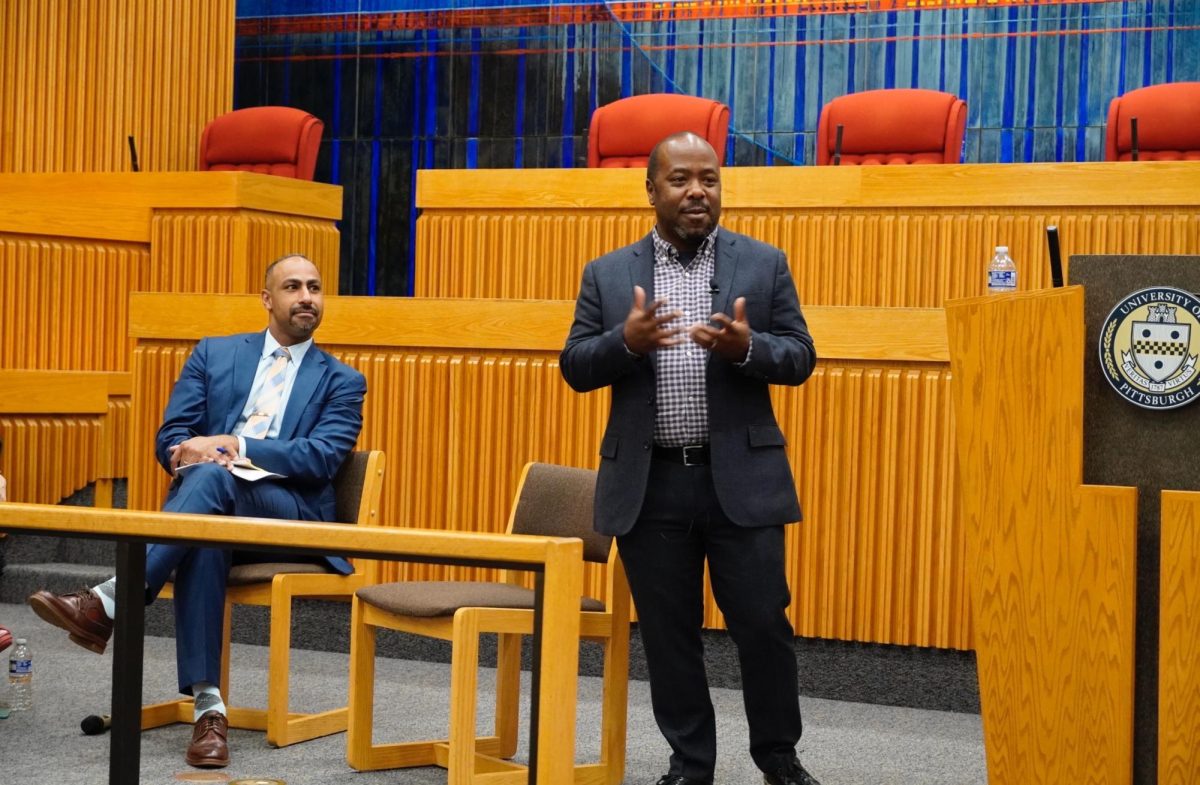Pitt’s School of Law hosted its annual Constitution Day event, with this year’s focus on voter education. Betrall Ross, a law professor at the University of Virginia and a member of the Presidential Commision to the Supreme Court, gave the headlining speech.
Ross said democracy is in danger when voters are not informed.
“Democracy has an information problem,” Ross said. “Voters lack time, resources and motivation to acquire and process information relevant to democratic choices. That information problem has dire consequences to democracy.”
Ross highlighted how the information problem impacts not just voters but the candidates too. He said it limits the government’s ability to be self-aware and receive feedback.
“When people lack political information, they cannot assess how well elected officials and policies find their constituents,” Ross said. “An unresponsive and unaccountable government can result as elected officials either suffer the ordinary democratic penalties or failure to represent their constituents nor derive the ordinary rewards for doing so.”
Ross spoke on how America’s democracy is trending toward violence. Ross cited the recent apparent assassination attempt on former President Donald Trump, the second of such attempts, as evidence our democracy is not healthy.
“The system of checks and balances are weakening, legislative processes are increasingly dysfunctional, attacks on election integrity have become the norm and violence has emerged as an element in presidential campaigns,” Ross said.
Ross highlighted how historic discrepancies with education along racial lines impacted the flow of political information.
“A history of slavery, segregation, persistent disparities in educational opportunities has had a multigenerational impact on the educational attainment of African Americans,” Ross said. “Those educational disparities diminish opportunities for the disadvantaged to acquire and process heuristics, information shortcuts. Those things that we rely on to make choices, heuristics, partisan labels, media organization enforcement, opinions of political leaders.”
The latter part of Ross’s speech focused on artificial intelligence’s impact on democracy and information. Ross posed scenarios where AI could be utilized by voters and politicians.
“The technology can provide elected officials and candidates with the capacity to anticipate their preferences of their many neglected constituents,” Ross said. “Technology can be developed to … provide the democratic citizen with the opportunity to compare candidates on their support or opposition to policy relevant to their well being.”
Ross raised the issue that AI needs more development before it is integrated into American democracy.
“AI is a tool that can help mitigate a deeply structural, historically derived problem of our democracy,” Ross said. “But more will need to be done to develop the technological capabilities of artificial intelligence.”


